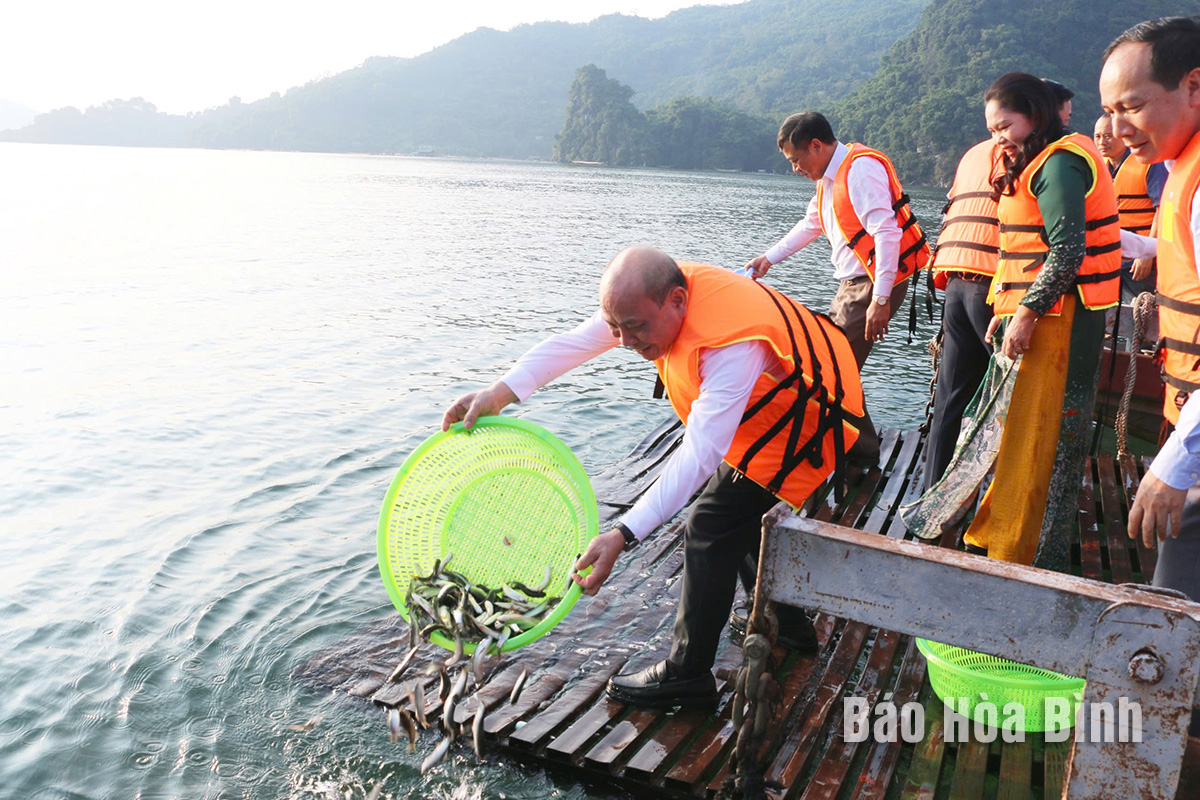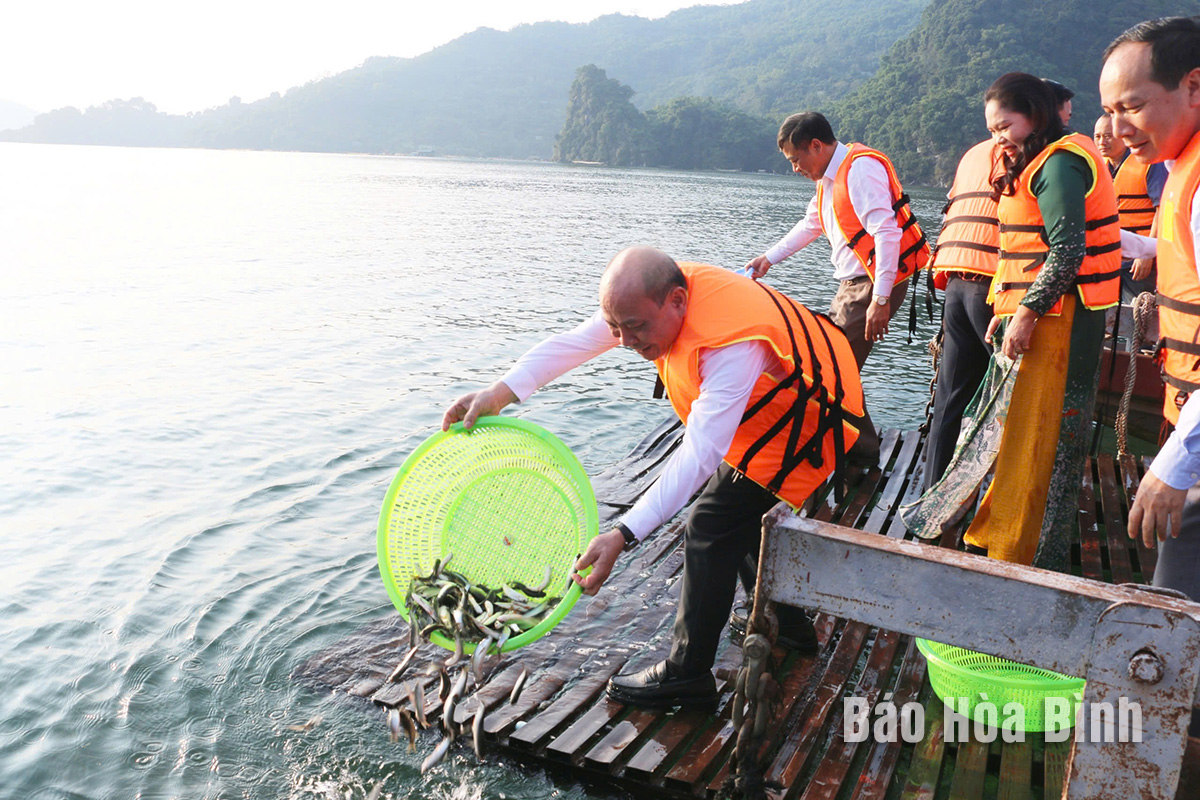
The provincial Department of Agriculture and Rural Development on November 20 coordinated with Hai Dang Group Hoa Binh Seafood Company Limited to release 1.5 tonnes of fries into Hoa Binh Lake to regenerate aquatic resources, with a total value of 266 million VND (10,460 USD).
This, an activity within the framework of
the second Da River Fish and Shrimp Festival in Hoa Binh province, saw the
presence of Bui Duc Hinh, Standing Deputy Secretary of the provincial Party
Committee, Chairman of the provincial People's Council; and Dinh Cong Su, Vice
Chairman of the provincial People's Committee.

Bui Duc Hinh, Standing Deputy Secretary of the provincial Party Committee, Chairman of the provincial People's Council, and leaders of several departments and sectors release fries into Hoa Binh Lake.
The Da River flows through Hoa Binh
province with an area of about 8,900 hectares, belonging to 19 communes of Da
Bac, Mai Chau, Cao Phong and Tan Lac districts, and Hoa Binh city. Hoa Binh
Lake is considered a valuable treasure of organisms and aquatic resources of
the province. However, in recent years, fishing, especially destructive fishing
methods, has depleted aquatic resources in the lake.
Therefore, every year, the agricultural
sector has mobilised many resources to protect, regenerate and develop aquatic
resources in Hoa Binh Lake. The activity aims to help organisations and
individuals understand the importance and responsibility of protecting aquatic
resources, implementing aquaculture and exploitation in association with
environmental protection, and strictly prohibiting the use of explosives, toxic
substances and electric shocks to exploit aquatic resources. This contributes
to the regeneration and restoration of resources, and diversification of
aquatic species in the waters of Hoa Binh Lake.
According to data from the Hoa Binh Provincial Party Committee, the industrial production index for the first six months of 2025 is estimated to have increased by 20% compared to the same period last year. This marks the highest year-on-year growth rate for this period since 2020.
In the first six months of 2025, Hoa Binh province’s export turnover was estimated at 1.145 billion USD, marking an 18.11% increase compared to the same period in 2024. Import turnover was estimated at $ 804 million, a 17.15% increase, which helped the province maintain a positive trade balance.
The lives of the ethnic minority farmers in Tan Lac district have gradually improved thanks to the new directions in agricultural production. This is a testament to the collective strength fostered through the professional associations and groups implemented by various levels of the district’s Farmers’ Union.
With the motto the "product quality comes first,” after nearly one year of establishment and operation, Muong village’s Clean Food Agricultural and Commercial Cooperative, located in Cau Hamlet, Hung Son Commune (Kim Boi district), has launched reputable, high-quality agricultural products to the market that are well-received by consumers. The products such as Muong village’s pork sausage, salt-cured chicken, and salt-cured pork hocks have gradually carved out a place in the market and they are on the path to obtaining the OCOP certification.
In the past, the phrase "bumper harvest, rock-bottom prices" was a familiar refrain for Vietnamese farmers engaged in fragmented, small-scale agriculture. But today, a new spirit is emerging across rural areas of Hoa Binh province - one of collaboration, organisation, and collective economic models that provide a stable foundation for production.
Maintaining growing area codes and packing facility codes in accordance with regulations is a mandatory requirement for agricultural products to be eligible for export. Recently, the Department of Agriculture and Environment of Hoa Binh province has intensified technical supervision of designated farming areas and packing facilities to safeguard the "green passport" that enables its products to access international markets.



